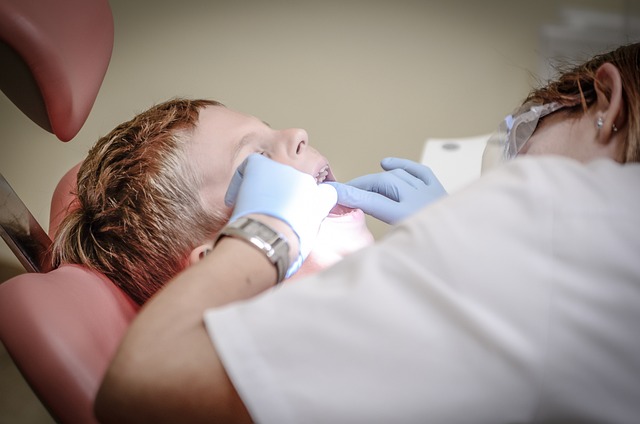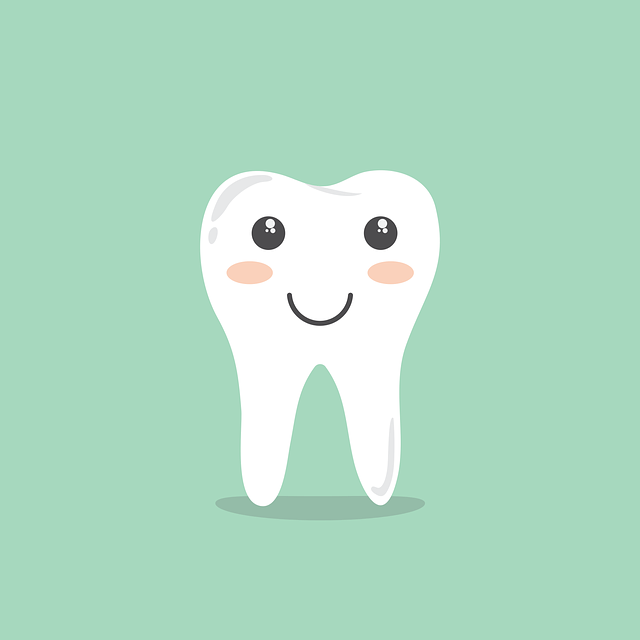Disinfecting Your Retainer After COVID: Safety Tips
As the world continues to adapt to the new normal brought about by the COVID-19 pandemic, it’s crucial to prioritize our oral hygiene and ensure that every aspect of our dental care routine is up to par. While we diligently clean our teeth and maintain a healthy smile, we often overlook an essential component – our trusty retainer. Whether you’re a wearer of braces, aligners, or simply use a retainer for various dental needs, it’s important to understand the significance of disinfecting this crucial orthodontic appliance in the wake of COVID-19. In this article, we will provide you with a comprehensive guide on how to safely disinfect your retainer and maintain optimal oral health during these unprecedented times. Let’s dive in and equip ourselves with the knowledge and tools necessary for a clean, healthy, and worry-free retainer routine.
1. Understanding the Importance of Disinfecting Your Retainer: Key Safety Tips during the COVID-19 Era
Keeping your retainer clean and disinfected is crucial, especially during the COVID-19 era. By following these key safety tips, you can ensure the well-being of your oral health:
- Wash your hands: Before handling your retainer, make sure to thoroughly wash your hands with soap and water for at least 20 seconds. This helps minimize the risk of transferring any harmful bacteria or viruses onto your retainer.
- Clean your retainer daily: It is important to clean your retainer every day to remove any plaque or bacteria that may have accumulated on its surface. Gently brush your retainer using a soft toothbrush and non-abrasive toothpaste or a mild soap. Rinse it thoroughly with water before wearing it again.
- Disinfect your retainer: In addition to daily cleaning, it is recommended to disinfect your retainer regularly. Soak it in a mixture of equal parts water and hydrogen peroxide for about 20 minutes. Rinse it thoroughly with water before using it. Alternatively, you can also use a retainer cleaning solution recommended by your orthodontist.
Remember, maintaining proper oral hygiene and keeping your retainer clean is essential in preventing any potential oral health issues. By following these safety tips, you can ensure the cleanliness and effectiveness of your retainer, especially during these challenging times.

2. Step-by-Step Guide: How to Properly Clean and Disinfect Your Retainer to Ensure a Germ-Free Mouth
Cleaning and disinfecting your retainer is crucial to maintain good oral hygiene and prevent the growth of harmful bacteria. Follow these step-by-step instructions to ensure your retainer stays germ-free and your mouth stays healthy:
1. Gather the necessary supplies:
– Mild dish soap or retainer cleaner
– Soft-bristle toothbrush
– Clean towel or retainer case
– Distilled water (optional)
2. Remove your retainer from your mouth and rinse it under lukewarm water to remove any loose debris. Be careful not to use hot water, as it may damage the retainer.
3. Apply a small amount of mild dish soap or retainer cleaner onto the toothbrush. Gently brush all the surfaces of the retainer, including the front, back, and sides. Pay special attention to any crevices or hard-to-reach areas where bacteria may accumulate.
4. Rinse the retainer thoroughly under lukewarm water to remove any soap residue. If desired, you can also soak the retainer in a mixture of distilled water and retainer cleaning solution for the recommended time stated on the product’s instructions.
5. After cleaning, pat the retainer dry with a clean towel or allow it to air dry. Avoid using paper towels or tissues, as they may leave behind fibers that can harbor bacteria.
6. Store your retainer in a clean retainer case when not in use to prevent it from coming into contact with other potentially germ-ridden surfaces. Remember to clean the case regularly using the same cleaning techniques as the retainer itself.
By following these simple steps, you can ensure that your retainer remains clean and germ-free, promoting optimal oral health and a fresh breath. Regularly cleaning your retainer is essential to maintain its longevity and effectiveness in aligning your teeth.
3. Choosing the Right Disinfection Method for Your Retainer: Exploring Effective Techniques in the Wake of COVID-19
When it comes to choosing the right disinfection method for your retainer in the wake of COVID-19, it is essential to explore effective techniques that ensure proper hygiene and safety. With the ongoing pandemic, it is crucial to take extra precautions to prevent the spread of the virus. Here are some key considerations to keep in mind:
- Consult with your orthodontist: Your orthodontist is an expert in dental care and can provide valuable guidance on the best disinfection methods for your retainer. They can recommend specific products or techniques that are proven to be effective against COVID-19.
- Follow manufacturer’s instructions: Different retainers may require different disinfection methods. It is important to carefully read and follow the manufacturer’s instructions for cleaning and disinfecting your retainer. This ensures that you are using the appropriate techniques and products that are safe for your retainer.
- Consider using antimicrobial solutions: Antimicrobial solutions, such as hydrogen peroxide or mouthwash, can be effective in killing bacteria and viruses. However, it is crucial to dilute these solutions according to the instructions and avoid using them if you have any allergies or sensitivities.
Remember, maintaining proper hygiene for your retainer is crucial not only during the COVID-19 pandemic but also for your overall oral health. By choosing the right disinfection method, you can ensure that your retainer remains clean, safe, and free from harmful bacteria or viruses.

4. Don’t Compromise on Cleanliness: Top 5 Safety Measures to Keep Your Retainer Free from COVID-19 Contamination
In order to ensure that your retainer remains free from COVID-19 contamination, it is crucial not to compromise on cleanliness. Here are the top 5 safety measures that you should follow:
- Wash your hands: Before handling your retainer, make sure to thoroughly wash your hands with soap and water for at least 20 seconds. This will help eliminate any potential germs or viruses that may be present on your hands.
- Clean your retainer: Regularly clean your retainer using a non-alcoholic mouthwash or a mild denture cleaner. Gently brush the retainer with a soft toothbrush to remove any debris or bacteria that may have accumulated. Rinse it thoroughly before placing it back in your mouth.
- Avoid exposing your retainer to high temperatures: Retainers can be sensitive to heat, so it is important to keep them away from direct sunlight, hot water, or any other sources of high temperatures. Excessive heat can cause damage to the retainer and may also reduce its effectiveness in preventing COVID-19 contamination.
- Store your retainer properly: When not in use, store your retainer in a clean and dry case. Make sure the case is tightly sealed to prevent any outside contamination. Avoid placing the retainer in a cloth or tissue as it can attract dirt and bacteria.
- Avoid sharing your retainer: It is essential to never share your retainer with others, as it can increase the risk of cross-contamination. Each individual should have their own retainer to minimize the spread of germs and viruses.
By following these safety measures, you can maintain the cleanliness of your retainer and reduce the risk of COVID-19 contamination. Remember to consult your orthodontist or dental professional for any specific instructions or additional guidance.
5. Debunking Common Myths: Separating Fact from Fiction When it Comes to Retainer Disinfection in the COVID-19 Era
As the COVID-19 pandemic continues to impact our lives, it is important to separate fact from fiction when it comes to retainer disinfection. There are several common myths surrounding this topic that need to be debunked in order to ensure proper oral hygiene practices. Let’s take a closer look at some of these misconceptions:
Myth 1: Soaking your retainer in mouthwash is enough to kill the virus.
- Fact: While mouthwash can be effective in killing certain bacteria and viruses, it is not a foolproof method for disinfecting your retainer against COVID-19.
- It is recommended to use a disinfectant specifically designed for dental appliances and follow the manufacturer’s instructions for proper usage.
Myth 2: Boiling your retainer will effectively eliminate any traces of the virus.
- Fact: While boiling your retainer can help kill some bacteria and viruses, including COVID-19, it may not be suitable for all types of retainers.
- It is crucial to consult your orthodontist or the manufacturer of your retainer to determine the appropriate cleaning method, as boiling could potentially damage certain materials.

6. Protecting Your Oral Health: Understanding the Potential Risks of Neglecting Retainer Disinfection amidst COVID-19
During the COVID-19 pandemic, it is essential to maintain proper oral health practices, including disinfecting your retainer regularly. Neglecting retainer disinfection can pose potential risks to your oral health. Here are some key points to understand:
- Bacterial growth: If you fail to disinfect your retainer regularly, bacteria can accumulate on its surface. These bacteria can lead to bad breath, gum infections, and other oral health issues.
- Viral transmission: COVID-19 is a highly contagious virus, and although the risk of transmission through retainers is low, it is still important to take precautions. Disinfecting your retainer helps minimize the chances of any viral transmission.
It is crucial to follow proper retainer disinfection guidelines during these challenging times. Here are some recommended practices:
- Regular cleaning: Clean your retainer thoroughly at least once a day using a gentle brush and mild soap. Rinse it well to remove any soap residue.
- Disinfecting solutions: Soak your retainer in a disinfecting solution recommended by your orthodontist or dentist. This can help eliminate any bacteria or viruses present on the retainer’s surface.
- Proper storage: Store your retainer in a clean case when not in use. Avoid placing it in areas with high bacteria exposure, such as bathrooms or kitchen sinks.
By prioritizing retainer disinfection and adopting these practices, you can protect your oral health and reduce the risks associated with neglecting proper retainer care during the ongoing pandemic.
7. Expert Advice: Proven Strategies for Maintaining a COVID-Free Retainer and Promoting Overall Well-being
As we navigate through the ongoing COVID-19 pandemic, it has become increasingly important to prioritize our health and well-being. This includes maintaining a COVID-free environment, especially when it comes to our retainers. Here are some proven strategies to help you achieve that:
- Clean and sanitize regularly: Ensure that you clean and sanitize your retainer thoroughly after each use. Use a retainer cleaning solution or a mixture of warm water and mild dish soap to remove any bacteria or viruses that may be present.
- Avoid sharing: It is crucial to avoid sharing your retainer with others, as this can increase the risk of virus transmission. Keep your retainer in a safe place and make sure no one else uses it.
- Practice good oral hygiene: Maintaining proper oral hygiene is essential for overall well-being and preventing the spread of COVID-19. Brush and floss your teeth regularly, and rinse your mouth with an antiseptic mouthwash to eliminate any potential viruses.
- Store your retainer properly: When you are not wearing your retainer, store it in a clean and dry case to prevent any contamination. Avoid leaving it in places where it can be exposed to germs or bacteria.
By following these expert-recommended strategies, you can effectively maintain a COVID-free retainer and promote your overall well-being. Remember, staying vigilant and taking necessary precautions is key to protecting yourself and those around you during these challenging times.
Frequently Asked Questions
Q: Why is it important to disinfect your retainer during the COVID-19 pandemic?
A: Disinfecting your retainer is crucial during the COVID-19 pandemic to reduce the risk of potential virus transmission. As the virus can survive on surfaces for extended periods, proper disinfection practices help ensure the safety of both you and others around you.
Q: How often should I disinfect my retainer?
A: It is recommended to disinfect your retainer at least once a day, or preferably after every use. Regular disinfection helps eliminate any potential pathogens that may have come in contact with your retainer, reducing the risk of contamination.
Q: What are the best disinfection methods for retainers?
A: The most effective methods for disinfecting retainers include using a non-alcoholic mouthwash, hydrogen peroxide solution, or a retainer-specific cleaning tablet. These solutions are known to effectively kill bacteria and viruses while being safe for use on dental appliances.
Q: Can I use regular soap and water to clean my retainer?
A: While soap and water can help remove visible debris from your retainer, it may not be sufficient for complete disinfection. It is recommended to combine soap and water cleaning with a proper disinfection method, such as using a mouthwash or retainer-specific cleaning solution.
Q: How should I clean my retainer if I don’t have access to specialized cleaning products?
A: If you don’t have access to retainer-specific cleaning products, you can use a non-alcoholic mouthwash or a hydrogen peroxide solution. These are readily available and effective alternatives for disinfection. Be sure to thoroughly rinse your retainer after using any cleaning solution.
Q: Can I use boiling water to disinfect my retainer?
A: Boiling water is not recommended for disinfecting retainers. High temperatures can distort the shape of the retainer or even damage it. Stick to safer alternatives like mouthwash, hydrogen peroxide, or retainer-specific cleaning solutions.
Q: How long should I soak my retainer in a disinfectant solution?
A: The duration of soaking your retainer in a disinfectant solution may vary depending on the specific product instructions. Typically, it is recommended to soak your retainer for about 15-20 minutes. However, always refer to the instructions provided by the manufacturer or consult your dentist for precise guidance.
Q: Can I use regular household cleaning products to disinfect my retainer?
A: No, it is not recommended to use regular household cleaning products, such as bleach or harsh chemicals, to disinfect your retainer. These products may damage the retainer material and pose a risk to your oral health. Stick to safe and appropriate retainer cleaning solutions.
Q: Is it necessary to disinfect my retainer even if I’m the only one using it?
A: Yes, it is essential to disinfect your retainer regardless of whether you are the only one using it. Bacteria and viruses can still accumulate on the retainer surface, even if it’s not being shared with others. Regular disinfection ensures optimal oral hygiene and reduces the risk of potential infections.
Q: Are there any additional safety tips for retainer usage during the COVID-19 pandemic?
A: Alongside regular disinfection, it is crucial to maintain good oral hygiene practices by brushing and flossing your teeth regularly. Additionally, avoid touching your face or retainer with unwashed hands, as this can introduce bacteria or viruses. If you experience any issues with your retainer or have concerns, consult your dentist for guidance.
Insights and Conclusions
In conclusion, ensuring the cleanliness of your retainer in the post-COVID era is crucial for your overall health and safety. By following these simple yet effective safety tips, you can maintain a pristine and disinfected retainer:
1. Cleanse and rinse your retainer thoroughly before and after each use.
2. Avoid using harsh chemicals or hot water that may damage your retainer.
3. Consider using a retainer-specific disinfectant solution to maximize cleanliness.
4. Regularly soak your retainer in an antibacterial mouthwash or denture cleaner.
5. Store your retainer in a clean case, keeping it away from potential contaminants.
6. Seek professional advice from your orthodontist or dentist for personalized cleaning recommendations.
Remember, a clean retainer not only ensures good oral hygiene but also plays a pivotal role in safeguarding your health during these challenging times. Stay informed, stay proactive, and prioritize your well-being.






